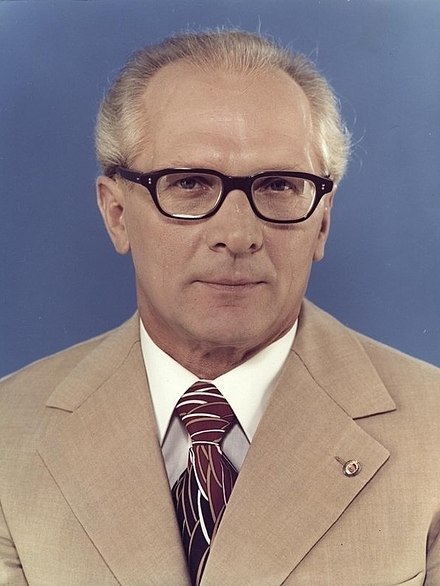There is undoubtedly a ton of socialist history regarding the promulgation and study of Esperanto.
https://en.prolewiki.org/wiki/Esperanto
It does not seem like it is nearly as popular as it once was, but there are examples of it being used and even celebrated in Cuba, China, and the DPRK.
I adore the idea of a lingua universalis. I am also aware of many of the criticisms of Esperanto, from its ostensible Eurocentricity to its difficulty with escaping unnecessarily gendered language.
Is there much use in learning it, outside of personal interest or as a hobby? Do you think that there are Esperantist movements large enough to justify learning it? Enough speakers?
I learned Esperanto when I was pretty young. Although I wouldn’t regard it as the right candidate for the purpose of being the world’s second language, I’m definitely glad I learned it. By knowing Esperanto as a kid/teen from the imperial core, I ended up casually chatting with people from China, Iran, and central Africa (mainly Burundi, Republic of the Congo and Democratic Republic of the Congo), regularly listening to radio programs from Cuba, China, and Poland, and seeing lots of Esperanto art and culture that had been made in the Soviet Union. It really did introduce me to a lot of different perspectives that, at the time, I didn’t realize were basically censored where I came from. And of course in general I met people from many countries. I would say that in any random conversation or community, I mostly met people from Europe, Brazil, and China.
The usual criticisms of it are pretty much valid in my view. However, just taking it as one language among many rather than pushing it as “the” solution for a world auxlang, I think it’s worth studying a bit if it intrigues you. I’d say another valuable thing I learned by being in the Esperanto speaking ‘sphere’ since a young age is that I really saw what kind of things it takes to get people organized to do something, what it takes to popularize an idea, and what kind of stuff absolutely does not work for getting people to believe or do something (there’s a lot of that in Esperanto communities lol). It’s also interesting to watch the development of the language, because it is a living language that grows and changes on its own at this point, while also having a regulating body, and a ton of highly opinionated idealists arguing constantly about this stuff. In that sense I find it an interesting window into how people manage and conceive of development in things. Finally I think it’s an instructive case in observing the growth and development of an auxlang, which could aid future, improved projects in that vein.
Having studied a few different languages, I will say that in my opinion, Esperanto lives up to the claim of being easy to learn. If you speak a Romance language it will be especially smooth sailing. When I have spoken with people who learned it from a completely non-European language background, they said it took a while to learn the vocabulary and that the pronunciation was difficult in some regards, but it was otherwise easy compared to natural European languages, which I would guess is owing to its lack of irregularities in grammar and spelling, its flexibility in grammar, the lack of demand that people have a particular accent, and the lack of strict collocations.
A lot of people dislike it that Esperanto lacks certain cultural things that natural languages have. IMO that kind of comes with the territory of learning a constructed language. Personally, I think it’s fun, as it creates kind of a playful/creative atmosphere. Esperanto serves as more of a tool or vehicle for sharing cultural things than as a deep well of culture in and of itself.
Like most things, the Esperanto community is full of liberals. This becomes somewhat balanced by the community itself being focused on trying to meet people from other countries and the community having a general curiosity for the world and wanting to do cultural exchange. But you will find many liberal and some reactionary opinions flying around in Esperanto communities. The idea/original “plan” behind Esperanto was pretty idealist (although I do think conlangs can have very real, useful applications worth exploring), so the community has a bit of that in its veins.
Personally, I am happy I learned it. I don’t use it frequently these days, but I do enjoy listening to a few songs, and I’ll always be happy about the friends I made, or to randomly run into someone else who speaks it and have a chat. Is it something I highly recommend? No, not really. But if it interests you, I think it’s something fun to do, and you’ll meet new people, and may find chances to travel or work using the language if you really look (you’d be most likely to find work in Europe or China using Esperanto if you managed to do so).
Final note: You can take a VR tour of an Esperanto museum in China here. I thought it was pretty cool.
Incredible write-up. Thank you for sharing your experience with the language!
Iirc, back when I was interested in learning Esperanto, one of the criticisms I saw was that it’s very Eurocentric in its design. It strives to be a “universal language” but is very obviously rooted in Romance language. However, conversely, I remember seeing the argument that learning Esperanto for a second language is comparable to learning the recorder for music: it’s not so much that you will use the skill in Esperanto, but more you will use the skill in language-learning to more easily learn other languages.
Personally, I think Esperanto is pretty neat, especially conceptually, but probably not too practical unless you’re involved in the Esperanto movement and committed to it. I believe there are people raised to speak it natively, and there is a sizable international community. It could still catch on, given the right spotlight.
Globasa looks like neat alternative “universal language” project that’s doing a least a little better than others at avoiding eurocentrism. Every world language family has to be represented.
Looking at a few of the sample sentences I see of the language, it would be a great language to use in a fictional setting. Just gotta swap out the characters. And honestly, using it in a good work of fiction would help its popularity immensely. Just look at the number of people who study Klingon or Elvish.
I’m not entirely sure of the scientific backing of that claim, but I heard that the current way of learning languages by studying them made it unnecessarily hard. On the contrary learning languages by immersing yourself like a child would could actually be the best way to learn languages.
If that’s true then Esperanto would actually be a harder language to learn since you can’t really fully immerse yourself, there are no native speaking communities or anything.
Also the reflection of ancient culture in languages is a beautiful thing to discover, an aspect that is absent from Esperanto
Still, could be practical if a lot of people knew it, and would still be the easiest if language immersion turned out to be not as good as its defenders say
in other words there is no reason to study any con lang?
there is no reason to study any con lang?
It can be interesting from a linguistic perspective, particularly ones that are different from natural languages, but if we’re talking 1000+ hour study or something, it probably would have been better use of time to learn Chinese or something
There are in fact large Esperanto communities, but they are very segregated from conlanging communities, because Esperanto is one of the most hated conlangs. Esperanto was very overhyped when it first came out. Because it has many haters and it’s overall a pretty mid conlang , I wouldn’t recommend learning it. If you want to be understood in many places, you should rather learn a popular natural language like Mandarin. If you want to be in the conlang community, then learn toki pona.
Esperanto is one of the most hated conlangs. Esperanto was very overhyped when it first came out.
These are surprising facts to know. How come?
Esperanto came out in 1887 and there wasn’t many good conlangs that time. A few decades later communism became the greatest hit in Europe so it got overhyped because of the idea of one universal language. When the hype went down, people realized that it’s not a really good conlang to be used as an IAL because it has many unnecessary features (like gender specific pronouns) and that it’s very eurocentric. The vocabulary is mostly just English and French words with a slightly changed pronunciation and the grammar really resembles indo-european languages as well.
Maybe this is a little bit of a cop-out, but I say if you want to learn a language, whether it has a massive community of speakers, small isolated enclaves of speakers, or none at all, you should go ahead and learn it. There’s no real downside unless you factor in the opportunity cost, that being you could have learned another, more “useful” language in the meantime, but would you have done so? Probably not, right? So go ahead and do whatever pleases.
Concerning lingua universalis, I’m not sure if something like that is possible or even desirable. And I’m not sure hand-wringing over “gendered language” or Eurocentricity are worth your trouble either. These are incidental aspects of language, constructed or not. Just my two cents.
What a coincidence! Yesterday I read about L. Zamenhof, the creator of Esperanto, in Wrocław at an exhibition billboard at the city market.
Esperanto has a vibrant community of people still, and meetups happen globally. Speaking it opens up tons of cliques, clubs and friend groups, like pen pals, events, concerts, or even camping/work and travel. It’s definitely worth it.
i think it’s fascinating, you can use it as some kind of secret code too!
saluton! mi estas lerni esperanto, mi volas lerni











